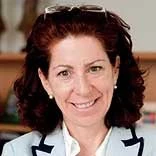The Nobel Prize in Economic Sciences is being shared this year by Elinor Ostrom, a political economist at Indiana University, and Oliver Williamson, an economist at UC Berkeley. The award could not be more appropriate in these times of rethinking what markets can and cannot do.
The award to Ostrom, who has spent her professional life studying how societies manage common resources is particularly relevant as we draw closer to the Copenhagen summit and countries are busy defining what they are willing to do to protect the global atmospheric commons.
In fact, Ostrom wrote a background paper for us earlier this year for the World Development Report 2010: Development and Climate Change. In it, she took exception to the notion that a solution to global change must be global. Such a solution would take too long, she argued. She also reminded us that a solution negotiated at the global level, if not backed up by a variety of efforts at the national, regional, and local levels, was not guaranteed to work well. This is because climate change is the result of many individual and local decisions.
Ostrom argues against the conventional theory of collective action (no one will change behavior in the absence of an external authority with the capacity to enforce, monitor and sanction) on two grounds.
First, there is limited empirical support for the conventional theory, with lots of successful examples (at the small and medium scale) of successful collective actions to protect forests, fisheries and other common pools. As she says, “a surprisingly large number of individuals facing collective action problems do cooperate.” Second, many local benefits are generated by reducing emissions. So local decisions generate local effects (good and bad), as well as influence global warming.
However, as Ostrom acknowledges in her interview with Adam Smith (no, really – he is the editor-in-chief of http://nobelprize.org) on the official Nobel site: “There are many settings that discourage self-organization.” She notes that cooperation tends to occur in settings with several broad characteristics:
- Many of those affected have agreed on the need to change and see themselves as sharing responsibility for future outcomes
- The reliability and frequency of information about the matter of concern is relatively high
- Participants know who else has agreed to change behavior and that behavior is being monitored
- Communication occurs among at least subsets of participants
None of these conditions seem out of reach… Let us hope that the negotiations will help produce the right kind of setting for cooperative action. As Professor Ostrom reminds us again this week: “Humans have great capabilities.”


Join the Conversation